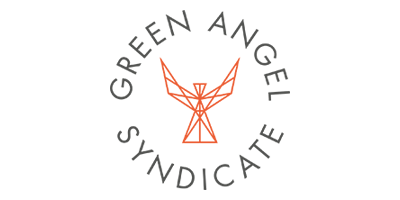Learning & Resources
As an interested observer of the unquoted UK funding market, I have long been curious about what is really going on around the symmetry between fundraising entrepreneurs and investors, be they crowdfunders, angels, VC or HM Government (via EIS, the Future Fund, £750m from InnovateUK grant funding, and £10bns from BBILs and CBILs).
Covid19 is going to be seen as a watershed moment in the history of unquoted funding. It is the first time in the modern age that the cause of readjustment was not because of technology disruption e.g. the boom, then bust of the DotCom age, a change in the legal framework of funding (the Financial Services Act coming into force in 2002) or even the impact of the chaos in another part of the financial services industry (the 2008 Crash - caused by much too clever by half financial engineering around property). It’s because globally we were slow to act on dealing with the Virus and its economic consequences. Today, to be honest we do not yet know what the medium term economic future holds. Will we see a V-shaped recovery, will we follow the pattern of the 1920s (Spanish Flu, Roaring Twenties; Great Depression) or will it be something else? What we do know is the consequences of Covid19 on our market are manifold and possibly permanent.
The sudden physical prevention of entrepreneurs being able to meet up, pitch to and negotiate with investors has led to a massive readjustment of how the two sides get a deal done. We have seen HM Government intervene in the market in an unprecedented manner, with the introduction of an investment instrument (the convertible loan note) that until the launch of the Future Fund, was popular with across the Pond, but rarely used in the UK. Now there is the looming impact of a major change in approach by the FCA around how our market must behave.
Covid19 has shown us all how, within weeks, some companies have become the unexpected winners (and others losers) when events, my dear, events redraw the map; and the consequences thereon of such changes on investor returns and more. Personally, I believe Covid19 will come to be seen as a mere step in the dance to the music of time, but that note will be one of the loudest and most memorable in the entire symphony, as the impact of the virus has changed how the market operates in a practical sense, forever. The angel and VC markets have already adapted with new technology offering workarounds or even better solutions to getting deals done (it’s not just video conferencing; consider how Docusign, is now unbiquitous). However technology has not solved the problem of the funding gap. The word on the street is that very little angel investment is currently taking place. At AngelNews HQ, we are seeing scarcely any stories of new investments or follow-on rounds being made by angels at the moment. Whilst Q2 and into Q3 was a phase where activity levels were high, as angels sought to fund companies they felt were worth backing; now in Q4, it is eerily quiet and I am not sure Q1 2021 will be any different.
For years, talk in the UK funding market has centred around EIS and SEIS. To be honest the annual EIS results, a highlight in my calendar at least, tended to send a message of move along, not much to show here, Between 1994 and 2020 there were numerous “local rag” level stories about the whys and wherefores of the schemes, but there was nothing seismic. A bigger story was the arrival of 10,000s of small investors into the market via the crowdfunders post the 2008 Crash which democratised access to investments, but perhaps not returns. Generally, however the story has been one of a nice annual upwards movement in amounts of investment and numbers of companies backed. The arrival of the Future Fund however is seminal. It has facilitated as much funding into the market in seven months as the EIS scheme typically provided in any one year. The question must be asked. What does this mean for EIS?
I have been taking soundings across the UK market over the last six months. The story in Q2 was rapid readjustment to shock – angels and VCs were up to their necks in sorting out how their portfolios would adjust to Covid19. Interestingly, I heard few stories of collapse and a heartening selection that showed how entrepreneurs (with a bit of extra funding probably) nimbly pivoted to fighting for success in the new normal. We saw an improvement on this issue in VC land in Q3, but from what I have seen, only a muted response on this issue from the angel market. The story of Q4 appears to be a time of review, reflection and planning for 2020. In none of the recent angel surveys I have conducted has the chance that investors will write cheques sooner rather than later, outweighed the view that it is better to sit and wait. The only noise is around the Future Fund.
Crisis always generates innovation and the entrepreneurs who pitch for help at our Pluralists Opportunities Club evidence the quality around. The entrepreneurial spirit is alive and well; with new exciting "new normal" opportunities emerging at scale and pace daily; not just in direct response to Covid19, but also in emerging industries and sectors such as Smart Cities, EdTech and Cyber & AI. The emergence of a LawTech sandbox is good news too. Bul will angel investors rise up to the challenge to meet their funding needs using S/EIs? Or will the Future Fund take over? How can it, when a company already needs to have received equity fundng, to qualify?
I think the jury is out. Online pitches are a workaround, but I suspect are not the solution of filling the funding gap at the bottom end. Right now, angels and VCs rely so much on the magic words from a fellow investor “I have met him/her/them, pre-Covid, in the real world and can vouch for him/her/them,” but pipelines of deals where investors actually know entrepreneurs, are drying up. We need to get back to face to face meetings soon to address this challenge because If angels are not there to do that critical first round, the Future Fund door will not open.
And if current angels choose not to provide the capital to fund these businesses, who will? We know that many people are flush with cash and may be facing a somewhat dismal outlook for some of their other investments. (Anyone want a bond or commercial property right now?). This will directly impact on their desire to release that cash for high risk early stage investment as they hunt for return. Maybe we will see a flood of interest from thousands of virgin angels, but will they know what they are doing? And what will the ramifications be if they invest a wall of cash, but within 12 months have lost it because they did not invest in the right deals or get the deal structuring right?
Could crowdfunding come of age to supply capital into the market? In theory Covid19 should have been the coming of age of equity crowdfunding, but we all know there is still something wrong with the model. Both Crowdcube and Seedrs are loss-making; SyndicateRoom is very quiet – no other platforms have come close to the volume AND quality thresholds required for crowdfunding to be to replace the impact of the supply of capital AND value added provided by angels/smaller VCs .
And why is the main story on the crowdfunding platforms about matching the Future Fund as a route to raising money? The crowdfunding platform’s customers are the companies, not the investors, as the former, not the latter pay their fees. Whilst the terms of the Future Fund are, in my view, right for investors in the context of the risk profile of many recipients now, the medium term consequences for founders are prima facie severe, especially if they cannot use the money to progress the journey to unicorn status. It says something about the platforms, that they are so enthusiastically encouraging their clients to engage in a funding round which may (will?) significantly hurt the back pockets of the founders who have hired them to raise capital.
The merger of Crowdcube and Seedrs is not certain. It is subject not only to the approval of hundreds of small shareholders, but also the Competitions and Markets Authority and the FCA. We watch and wait. Even if it goes through, is it good news to have a near monopolist in the market? So whilst Covid19 may be marked as the date of the emergenceof a scaled, profitable crowdfunding platform, it could end up as the time when crowdfunding started to die.
Whatever the market does, what HM Government decides, matters. HM Government subsidises our market every which way – Business Rates Relief, VAT deferral, BBILs, CBILs, Future Fund, InnovateUK. R&D tax credits, S/EIS, Business Property Relief, British Business Bank Angel CoFunds, Enterprise Capital Funds, British Patient Capital, the new British Infrastructure Bank. There must be more, I just can’t remember them!
The truth is Covid19 has seen the UK unquoted funding market quasi-nationalised. HM Treasury surely will be taking a look at all this and thinking about which schemes were the most cost-effective way to give entrepreneurs the boost they need to grow. And they may not see it quite the same way as we do. For good or bad, BBILs, CBILs and The Future Fund have shown clearly that there is another way than stimulating angels and private investors through tax break schemes. We inside the garden need to take note and think hard, fast about the arguments we need to use if we want S/EIS to thrive from 2021 onwards, especially if the stats show angels turned their noses up at using the schemes in 2020.
I doubt many people think much about the long arm of the FCA in the context of angel investing, but it is there, nonetheless. Two recent FCA consultations matter. Firstly, the consultation on how FCA approved firms should behave around promoting investment opportunities is extremely important as the FCA’s plans will create more protection (or is it restriction?) about who can approve a promotion and how they must approach the exercise. This will impact on who can see what deals; and by that, I mean fewer people will see fewer deals. And deal-making will become more expensive as those with authority to approve adverts will know the value of financial promotion sign off. So, angels will have less choice at higher indirect cost. The consequences of this consultation https://www.fca.org.uk/publication/call-for-input/consumer-investments-market.pdf (Check out Chapter 4) are even more significant and could reverberate across the industry for years.
The themes of these two consultations gives us a lot of insight into how the FCA is thinking. They are very worried about how our market is operating and are uncertain that consumers (investors) are being treated right. It is their job to ask the questions, but what will be the consequences if they tie up fundraisings in red tape or further restrict who may legally see deals? What will happen to the likes of Angel Investment Network? Will it be allowed to continue operating without being FCA regulated, even though it promotes investment opportunities in a pretty similar way to regulated firms, by hiding behind a certificated investor paywall? Will the angel clubs and networks reject FCA authorised business models and step down to the Angel Investment Network model to run cheaper less bureaucratic, but potentially more profitable businesses, or will their clients reject the resultant lack of professional standards and the rest, that FCA authorisation encompasses?
Thanks to Covid19, HM Government has flooded the SME market with £10bns, which has saved the bacon of many an entrepreneur and investor. We must thank them; they have been extraordinarily generous. HM Government does not have the time right now to give us much attention. They have more important things to think about. We must give them the space to find the time to think and listen, so they set the right strategy post-Pandemic, but we must also be ready with strong arguments about why the angel market must be helped to thrive. A good start would be some transparency about returns. .
What should HM Governments' strategy be? Clearly the Future Fund is doing what HM Government needs at a macro level. It has enabled, at the time of writing, around £2bn of investment capital into UK unquoted companies in around 7 months. That compares with £1.8bn of EIS funding in 2019 and £2bn in 2018. How can we help HM Government to shape the Future Fund V2.0, so it helps the private sector to do what it needs to do beyond just the provision of capital, especially as most taxpayers, civil servants and MPs will be delighted that HMT stands to make a positive return on its own Future Fund CLNs, unlike on EIS, where it takes a 30%+ hit on tax receipts due to the Income, CGT and IHT tax breaks. The growth in scope of the British Business Bank also matters, with British Patient Capital and its siblings at British Business Bank having been busy. Direct intervention (even if it means nationalisation) from the eyes of No10 and No 11, prima facie works to fill the funding gap at scale. Will the view take hold that that angel investment would be better off nationalised too? Will we find that angels too must subordinate to Boris Johnson’s cheque book? Will entrepreneurs even want to speak to us if there is a bigger pot to chase? Do we really offer more than money? Ouch. I hope I am wrong, as this matters not just for the UK, but also for the rest of the world, as countries tend to look to the UK for guidance on policy in this area.
Returning to entrepreneurs, who will be seen as the winners and losers in Covid19? And I start with a caveat because the winners now, will not necessarily be the winners in phases 2, 3 or even long term. My call on the entrepreneurial winners, will be those who showed characteristics as follows:
- Innovative
- Nimble and able to pivot
- Resilient and determined not fail
- Focused on cash
- Persuasive and articulate
- Emotionally intelligent
- Grabbing the opportunity with both hands, and most of all
- Able to get their hands on cash from friends family and investors as needed.
(The investor winners will be those who make the bold moves to back the entrepreneurial winners before the HM Government money tree becomes relevant).
And we have to accept that what ever we do, the biggest winner will continue to be HM Government; if they are not making money on their investments, they will be making money on tax receipts. The FCA will win too in another way - it will extend its reach still futher into our lives. It's opportunty will be to become a force for good which helps our market become stronger. My word of warning to both, it simple - intervene too much and the private sector will be damaged, not permanently but perhaps for a decade or more. The one market that should be furthest from socialism is angel investment..
I want to mention something we have working on during Lockdown, which is designed to inform both HM Government and the market so we can all make better decisions around funding SMEs. Check out www.funding-index.com. It’s already giving us great insight on the future winning businesses and sectors in the UK and raising awareness of what funding is needed (as opposed to what funders think is deserved).
When one thinks about the existing entrepreneurs who have won during Covid19, we can clap for the brewers who turned their hands to making hand sanitiser or the clothing companies who made PPE and masks; and for the vaccine companies or those with new sprays that kill Covid19 with a squirt up the nose. And the tech companies that have grown and grown. And the SME retailers who put toilet paper into their windows so they could stay open, And the restaurants and pubs that have become hot desks and takeaway gurus, but the Funding Index is an acorn that will become an oak tree to reveal who we as investors must help to grow whether times are normal or not.
We have already collected funding need from over 360 companies (of which 260 are currently fundraising) from individual outreach to entrepreneurs and from some lovely early adopters (see their logos and click please!) who are supporting our initiative. We are hopeful that accelerators, networks and platforms, angels and entrepreneurs will join us in this greater good initiative. Just imagine if there was one place where you could see the national picture of funding need? Please help – send us entrepreneurs so we can capture their need and then we can all work together to find out how to get them the right funding at the right time.
And to give you a hint of the point of the Funding Index and why it will be so valuable to us all, here are a few juicy facts…
- Northern Ireland has a funding need of over £30m – let’s get over there and help by speaking to Alan Watts at http://corporateni.com/company/halo-ni-business-angels
- The Midlands Universities have stolen a march on the rest of the country in a new sector, Smart Cities – Speak to Quentin Compton-Bishop at https://micragateway.org/
- Don’t assume everything in Cyber and AI is happening in England. Scotland is a hotbed of activity – speak to Danny Helson at EIE https://www.eie-invest.com/
- Crowdfunding is busy, but needs an independent lens and this will only get more important with a market dominant SeedCube – speak to Sacha Bright at https://nextfin.uk/















